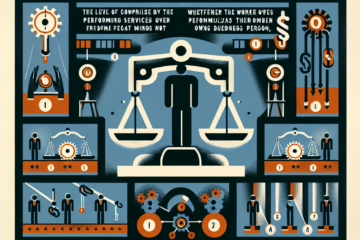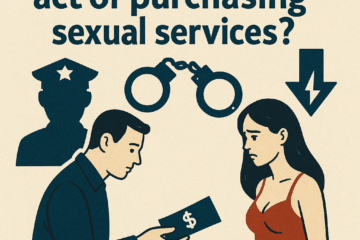Bail Hearings and Conditions in British Columbia
Table of contents
Navigating the justice system can be a daunting task, particularly when it involves bail hearings. In British Columbia, understanding the nuances of bail hearings and the conditions that may be imposed is crucial for anyone facing criminal charges, as well as their families. This comprehensive guide aims to demystify the process and provide valuable insights into how bail works in BC.
What is Bail?
Bail is a legal mechanism that allows an accused person to be released from custody while awaiting trial or further court procedures. The primary purpose of bail is to balance the judicial system’s need to ensure that the accused appears at trial against the fundamental principle of justice that presumes innocence until proven guilty.
The Bail Hearing Process in BC
- Initial Arrest and Custody When a person is arrested, they may either be released by the police with a promise to appear in court or held for a bail hearing. This decision depends on several factors, including the nature of the crime, the accused’s criminal history, and their ties to the community.
- Conducting a Bail Hearing A bail hearing must occur within 24 hours of the arrest or as soon as possible if a judge is unavailable. During the hearing, a judge or a justice of the peace will determine whether the accused can be released and under what conditions.
- Arguments from Crown and Defense: The Crown prosecutor and the defence attorney will present arguments regarding the accused’s release. The Crown may argue to keep the accused in custody, especially if concerns about them fleeing, committing further offences, or if the release could undermine public confidence in the justice system.
- Decision: The judge will decide whether to grant bail based on factors such as the likelihood of the accused fleeing, the gravity of the offence, the evidence against the accused, the accused’s history and character, and the strength of the Crown’s case.
Common Conditions of Bail in BC
If bail is granted, the court will impose conditions the accused must follow. These conditions are designed to ensure the accused appears in court and to protect the public. Common conditions may include:
- Reporting to Police: Regular check-ins at a local police station.
- No-Contact Orders: Prohibiting contact with victims or witnesses.
- Travel Restrictions: Limiting the accused’s ability to travel outside a certain area.
- Curfew: Requiring the accused to be at home during specified hours.
- Surety: Requiring someone to agree to pay a certain amount if the accused fails to comply with bail conditions.
Violating Bail Conditions
Violating any of the bail conditions can lead to re-arrest, and additional charges may be filed. The accused must understand and adheres to all the conditions set by the court.
Bail Hearing Strategy
Having a knowledgeable legal team is critical during bail hearings. A skilled lawyer can make a significant difference in the outcome by presenting a strong argument for the accused’s release and proposing reasonable conditions that satisfy the court’s concerns.

Bail hearings are a critical early step in the criminal justice process in British Columbia. They serve a fundamental role in upholding the accused’s rights while ensuring the judicial system’s integrity. Understanding the factors that affect the likelihood of bail and adhering to imposed conditions are essential for navigating this process effectively.
FAQ
The purpose is to determine whether an accused person can be released from custody while awaiting trial and under what conditions.
A judge or justice of the peace decides at a bail hearing.
Conditions can include no contact orders, travel restrictions, curfews, and regular reporting to police.
Yes, conditions can be modified by the court if new evidence or changes in circumstances are presented.
Violating bail conditions can result in arrest and potential new charges.
Bail may involve financial conditions, such as posting a bond or providing a guarantee from a surety.
Judges consider the seriousness of the offence, the accused’s criminal history, the risk of fleeing, and the potential threat to the community.
Whenever possible, a bail hearing is held within 24 hours of the arrest.
Yes, if not automatically granted, the accused or their lawyer can request a bail hearing.
The Crown argues for or against the release of the accused based on risks to the public and the likelihood of the accused appearing in court.
It is highly recommended to have legal representation to navigate the complexities of the bail process.
A surety agrees to be responsible for the accused complying with bail conditions.
Conditions last until the trial concludes or the charges are otherwise resolved.
Yes, bail can be denied if the judge deems the risks too great.
It means being released without financial terms, based on the accused’s promise to appear in court.
These conditions prevent the accused, typically the alleged victims or witnesses, from contacting certain individuals.
Compliance involves adhering strictly to the conditions set out during the bail hearing.
Yes, bail hearings are generally open to the public.
The accused must remain in custody or apply for a review of the conditions.
It balances the rights of the accused against the safety and concerns of the community.
Pax Law can help you!
Contact Samin Mortazavi, a lawyer at Pax Law Corporation, where expertise and dedication converge to resolve your criminal law needs. As a knowledgeable lawyer with a profound understanding of Canadian criminal law, Samin Mortazavi offers strategic guidance and advocacy for navigating complex criminal cases. Whether it’s defending against charges, handling criminal appeals, or advising on legal rights, Pax Law Corporation is your trusted partner in managing your criminal law matters. Protect your future by reaching out to Samin Mortazavi today.
Our lawyers and consultants are willing, ready, and able to assist you. Please visit our appointment booking page to make an appointment with one of our lawyers or consultants; alternatively, you can call our offices at +1-604-767-9529.
Discover more from Pax Law Corporation
Subscribe to get the latest posts sent to your email.



0 Comments